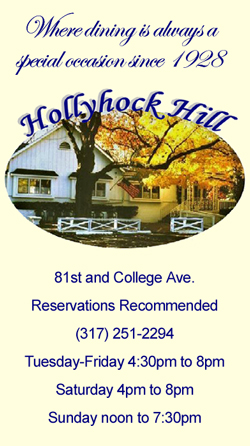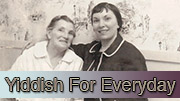Did you ever have a song pop into your head whose lyrics echo what you are thinking at the time? Below is what I wrote for our February Indiana edition.
To remind myself and others that even in the midst of challenging times it is also possible to have positive experiences, the phrases below are excerpted from the book, 14,000 Things to be Happy About by Barbara Ann Kipfer. She introduces her list by saying that she sometimes brightens a gray day by flipping through her list to cheer herself up, and she urges her readers to find the happiness that comes from noticing and enjoying the little things in life.
50 from the book:
pajamas at breakfast • a baby’s first tooth • a baseball game going on extra innings • toddler’s vocabulary • eight hours of sleep • dinner with laughter • ghost stories and marshmallows by fire • watching the winning touchdown • weathered docks on tall stilts • a cardinal’s brilliance against the snow • third markdowns • bar stools • dreaming on the river bank • western sundowns • when friends drop in • deep dish apple pie • looking irresistible • floats and fireworks • star gazing • a road winding through orchards • learning to play a musical instrument • old-fashioned hot fudge sundaes • singing to your favorite music • puppy love • stretching out on the carpet with games and puzzles • an extended vacation • greasing and dusting cake pans • the smell of the sea • dining by the window • wearing real jewelry • collapsing in bed and cuddling • shiny hair • cleaning off your desk • going barefoot on closely cropped grass • complimenting a total stranger • flipping coins into a fountain • the delights of finding the first spring flowers • discount tickets • unplugging the phone • blowing the wrapper off the straw • writing a love letter • someone who says you are beautiful • the book that makes the difference • someone fixing something without being asked • self-sticking stamps and envelopes • laughing until you cry • ice carvings • a breath of fresh air • buggy rides
Shortly afterward the song, “What a Wonderful World” by Louis Armstrong (1968) came to mind. It was written by producer Bob Thiele and composer and performer George David Weiss. Inspired by Armstrong’s ability to bring people of different races together, Weiss recounted that he wrote the song specifically for him.
Simply put, the song is about appreciating the beauty of one’s surroundings. I could not remember all of the lyrics so I looked them up on YouTube at the following link: (www.youtube.com/watch?v=Q_GommH5rJ8). There I found a beautiful video accompanying the song and it had a prelude to it. That part, also sung by Armstrong, strongly resonated with my editorial from February. Below are the lyrics followed by the prelude.
Lyrics: I see trees of green, red roses too
I see them bloom for me and you
And I think to myself…What a wonderful world.
I see skies so blue and clouds of white
The bright blessed day, the dark sacred night
And I think to myself…What a wonderful world.
The colors of the rainbow so pretty in the sky
Are also on the faces of people going by.
I see friends shaking hands saying: How do you do?
They’re really saying: I love you.
I hear babies cry, I watch them grow
They’ll learn much more than I’ll never know
And I think to myself …What a wonderful world.
Yes, I think to myself…What a wonderful world.
Prelude: Some of you young folks have been saying to me, “Hey Pops, what you mean ‘what a wonderful world’? How about all them wars all over the place? You call them wonderful? And how about hunger and pollution? That ain’t so wonderful either.”
“Well how about listening to old Pops for a minute. Seems to me, it ain’t the world that’s so bad but what we’re doin’ to it. All I’m saying is see what a wonderful world it would be if only we’d give it a chance. Love baby, love. That’s the secret, yeah. If lots more of us loved each other we’d solve lots more problems. And then this world would be a gasser*. That’s wha’ ol’ Pops keep saying.”
*definition of gasser: dated slang for a joke or something that is very thrilling or entertaining
This reminded me of a suggestion that pain management experts make to help alleviate physical pain. If your right foot is hurting, they say focus on your right ankle, calf, knee, thigh, hip or your left foot, leg, arm, hand – whatever places on your body that do not hurt. If you tighten the muscles in those places and then relax them, this will help reduce the tension caused by the contracting of those muscles that was caused by the pain. It also temporarily takes thoughts away from the pain.
These phrases and lyrics above are similar. They remind us that even in traumatic times, not everything is a disaster. Possibly some situations are still okay, even going well.
As I have seen in the recent writings of others during this time of quarantine, they appreciate finally being able to have quality time to communicate with close family and friends. They are thankful to be doing activities they never found time to do before, such as reading, writing, resting, sewing, cooking and cleaning. Personally, I loved watching a free live concert on Facebook by Nefesh Mountain’s Doni Zasloff and Eric Lindberg.
At other times in history, humans have faced great challenges. From studying them we can also see growth and strength that were gained from the struggles. I wouldn’t wish difficulties on anyone but I am grateful for the changes and improvements that resulted.
I was born after World War II, so I cannot say what it was like to celebrate Passover during that time, but I will share one example so you can see how one woman modified what she had done prior to the war and made do with what she could get so the soldiers in her care could experience a nice Seder.
Jessie (Levin) Bernstein, of blessed memory, organized a Passover Seder in Naples, Italy in 1944. She was a dietitian for the United States Army and she served six station hospitals at that location starting in 1943 for a year and a half.
The beginning of 1944 saw a lot of artillery and airplanes dropping bombs. After the fighting subsided and a couple of months before Passover, Bernstein asked permission to hold a Seder for the Jewish soldiers who were hospitalized in her area. The army issued her cans of beef which she immediately exchanged for canned chicken.
Naples is a port city and when she heard the Navy was in town, she got a driver and a jeep to take her to talk to their captain so she could see about getting more food items for the Seder. He was not Jewish but was very supportive of her mission. He took her canned chicken and exchanged it for what turned out to be much tastier frozen chicken on the bone. She also was able to get a half crate of fresh eggs. The dehydrated eggs they had were no comparison to fresh eggs which no one had seen for more than a year.
The officers were already being favored with fresh fruit and vegetables so she was able to get those fresh greens for the Seder plates along with the fresh eggs. The Jewish Federation saw that they got all of the matza and Mogen David wine they needed for the Seder. She used white sheets for tablecloths.
None of the cooks were Jewish except one but they all pitched in. They had one little hand grinder which they used to make matza meal for the matza ball soup. About two weeks before the Seder, Bernstein put notices with the date and time on the bulletin boards of all six hospitals.
She didn’t want the hospitalized soldiers to have to stand in line for a Seder so she hired 45 extra waiters who were friends of the wait staff who worked in the officer’s mess hall. At the last minute, all the waiters got scared and were going to leave.
At that time the Catholic Church had instructed their members not to listen to the religious services of any other religion. Bernstein ran and found their Catholic chaplain who knew some Italian. She asked him to tell the waiters that half of the service would be in Hebrew which they would not be able to comprehend and the other half would be in English, also not understandable to them without a translator. He convinced them that they would not be violating any rules.
A Jewish chaplain from Caserta Army Headquarters had about 300 of the Maxwell House Coffee Haggadahs that he brought for the men to use. On the night of the Seder about that many soldiers showed up in their hospital robes. Probably less than half were Jewish but the men had heard there was going to be a great meal!
There was no way to tell which ones were Jewish so they accepted all of them. All sat down and participated in the Seder. None of the other hospitals had a Passover Seder that year. It turned out to be a wonderful evening for all in attendance. Originally published March 18, 2009.
Chag Pesach Samayach!
Jennie Cohen 3-18-20






